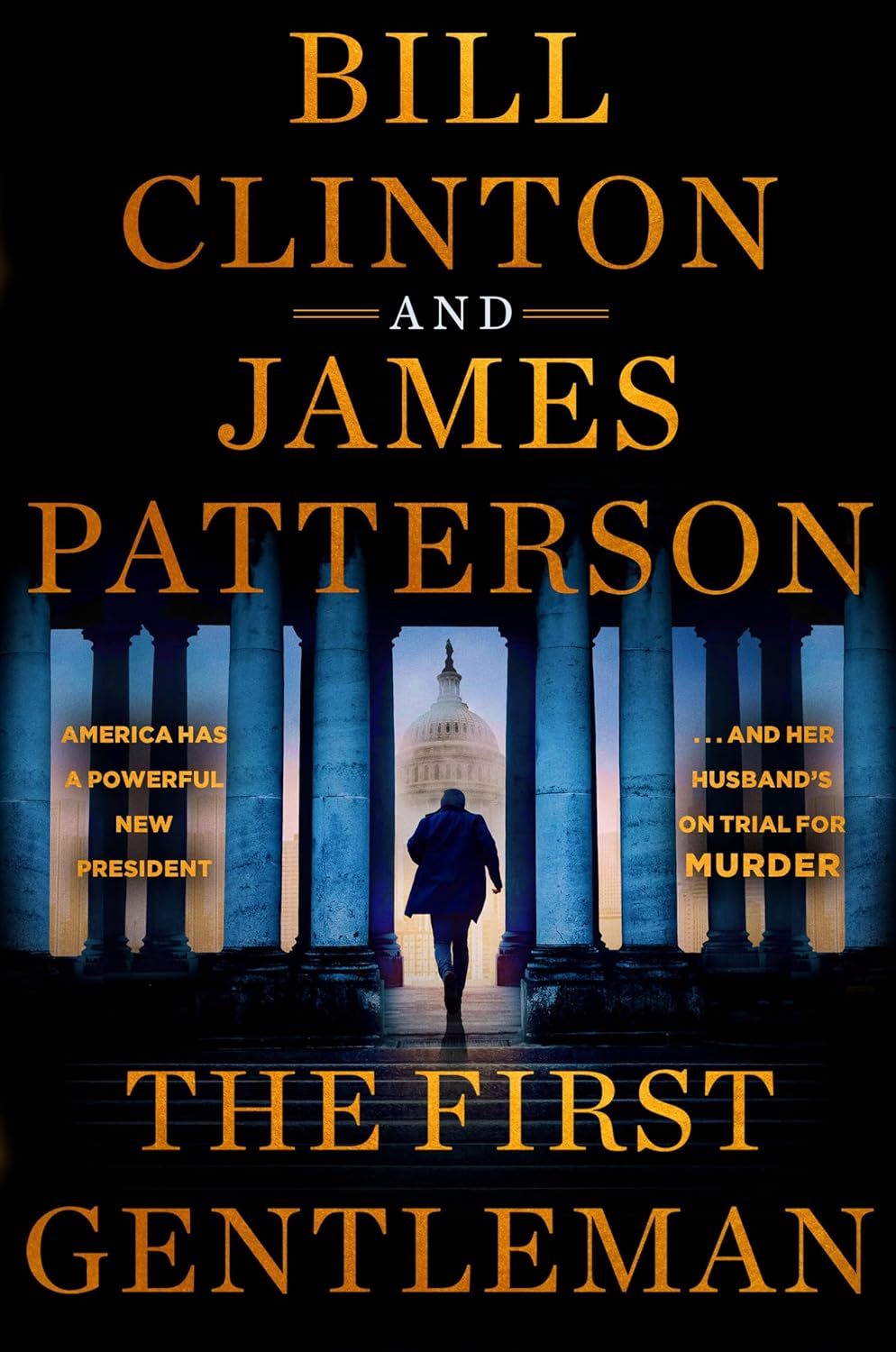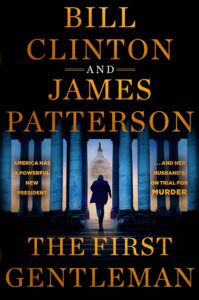Book Summary
In The First Gentleman, James Patterson and Bill Clinton deliver a high-stakes political thriller where President Madeline Wright faces a crisis: her husband, Cole Wright—a former NFL star turned First Gentleman—is accused of murdering a cheerleader from his football days. As the trial unfolds, the President balances reelection campaigns, a groundbreaking economic “Grand Bargain,” and personal loyalty, while investigative journalists Brea Cooke and Garrett Wilson dig into a web of secrets that threatens to unravel the White House . The novel blends courtroom drama, media intrigue, and insider politics, with Patterson’s signature short chapters propelling the tension.
Clinton’s White House expertise elevates the authenticity, from procedural details (like motorcade logistics) to the emotional toll of presidential life. While the plot leans on familiar thriller tropes—red herrings, mob ties, and last-minute twists—the collaboration shines in its portrayal of power dynamics. Critics praise its “taut yarn” construction :cite[5], though some note the central mystery’s predictability. The real draw is the clash between Cole’s public persona (“American hero”) and the prosecution’s narrative (“monster”), amplified by media frenzy .
Key Themes
Power and Public Scrutiny: The novel interrogates how personal lives are weaponized in politics. Cole’s trial becomes a proxy battle for the President’s agenda, mirroring real-world partisan conflicts. Clinton’s insight into presidential vulnerability—”I was more a storyline than a story” —fuels scenes where Madeline negotiates policy amid scandal, highlighting the absurdity of governing under a microscope.
Justice vs. Perception: Through Brea’s investigative arc, the authors explore media ethics and confirmation bias. Her initial certainty of Cole’s guilt wavers as she uncovers FBI corruption and mob involvement, culminating in a late-game twist about the cheerleader’s fate . The theme resonates in an era of “fake news,” though some reviewers found Brea’s pivot from vengeance to truth “abrupt” .
What Makes It Unique
White House Realism: Clinton’s contributions lend unmatched depth—from the “Gray Ghost” chief of staff’s Machiavellian maneuvers to the Secret Service’s protocols (“That room is so small, there’s not room for three people” ). The “Grand Bargain” subplot, a wonky yet pivotal Medicare reform, reflects Clinton’s policy passion, though its lengthy exposition stalls momentum.
Dual Narrative Structure: Alternating between Cole’s trial and Brea’s investigation, the book mirrors The President’s Daughter’s pacing but adds courtroom theatrics. Patterson’s fans will relish the “90-second chapters” , while Clinton’s political asides—like a jab at “tax cuts for billionaires” —ground the escapism in contemporary debates.
Reader Reactions
Early reviews highlight the “unrelenting tension” , with NetGalley users calling it “the best Patterson-Clinton collaboration yet” . The courtroom scenes, particularly Cole’s defiant entrance through the courthouse’s front door (“I’m not hiding” ), drew applause for their symbolism. However, Kirkus notes the villain’s identity is “telegraphed early” , and some readers felt the ending’s policy speech clashed with the thriller tone .
Fans of the duo’s prior works praised Brea’s complexity—”a standout Black female lead in a genre dominated by white male heroes” —while critics argued Cole’s character lacked depth (“eh, not as big as Brea” ). The audiobook, narrated by a full cast, earned extra acclaim for dramatizing trial testimonies .
About the Authors
James Patterson is the world’s top-selling thriller author, known for the Alex Cross and Women’s Murder Club series. His collaboration with Clinton began with 2018’s The President Is Missing, blending his breakneck pacing with political authenticity. Patterson’s role here focused on character arcs, particularly Brea’s evolution from “wronged journalist to truth-seeker” .
Bill Clinton, the 42nd U.S. President, infuses the novel with insider details—from the stress of presidential marriages (“You still have to do the job” ) to legislative strategizing. His cameos include a jab at his own near-miss as First Gentleman: “It’s the only job I ever wanted that I didn’t get” . The book’s economic subplot mirrors his 1990s centrist policies, adding a memoir-like layer for politics junkies.
Memorable Quotes
“Going in through the rear of the courthouse signals that I’m guilty. Screw that. I’m running the ball straight through the line of scrimmage.” —Cole Wright, defying PR handlers .
“Journalists want to go after the truth… That’s what we want them to do.” —Brea Cooke, wrestling with her biases .

